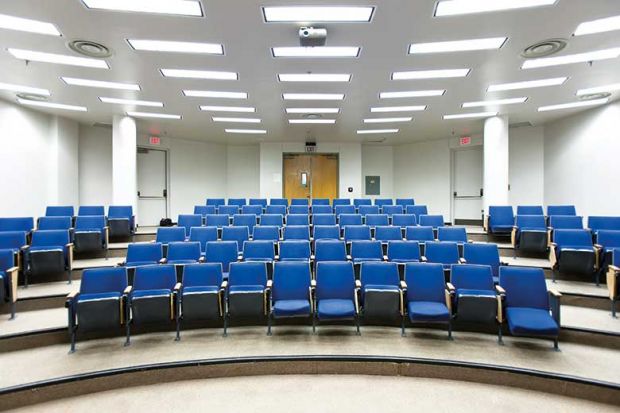UK universities that did not do enough to mitigate the impact of last year’s pensions strike on students’ learning have been ordered to refund about half the value of the teaching hours missed.
The rulings by the sector ombudsman for England and Wales, the Office of the Independent Adjudicator, potentially open the door to more payouts for students who are still locked in disputes with their universities linked to the 14-day walkout over changes to the Universities Superannuation Scheme.
The OIA said in its annual report last month that it received about 50 complaints during 2018 that were linked to the industrial action, but it ruled that more than a third of these were ineligible because the students involved had yet to exhaust the internal appeals process at their institution. That tally of complaints has now risen to 80.
Publishing a fresh batch of case summaries on 14 May, the adjudicator set out how it had considered whether universities had made efforts to mitigate the academic impact of lost teaching and whether they had tried to make up for lost learning opportunities.
Where providers were judged to have not gone far enough, the OIA’s “starting point” was to recommend that they refund 50 per cent of students’ tuition fees for the affected period.
Most universities have “gone to some lengths” to ensure that students were not academically disadvantaged, said Felicity Mitchell, the independent adjudicator.
But some “have been better than others” at finding ways to make up for the learning that students have missed out on, by providing lecture recordings and podcasts, for example.
“Others have done nothing, and we don’t think that’s fair,” Ms Mitchell said. “We have made recommendations in a number of cases for partial refunds of tuition fees and payments for distress and inconvenience where we have decided the student has not been treated fairly.”
Of 19 case summaries published so far, the OIA has ruled that nine complaints were partly justified and that seven were not justified. Two were not eligible, and one was settled.
In one of the newly published summaries, an international student on a one-year master’s programme complained about missed teaching hours, and the OIA recommended that the university offer to refund £1,284 in tuition fees.
In another, a student in the final year of an undergraduate course complained they had paid for lectures and seminars that were not provided, and the OIA recommended that the university offer to refund tuition fees of £631.
Sarah Liddell, head of the leadership office at the OIA, said that each case was considered “on its merits as a whole” rather than applying a “fixed rule”, but there was a “starting point” of a 50 per cent refund.
If a student was in their first year, for example, the OIA might take the view that they had more opportunity to make up for the lost learning than someone who had already completed their course and would therefore reduce the suggested refund.
Students have a year to bring complaints to the OIA after exhausting their university’s internal procedure.




